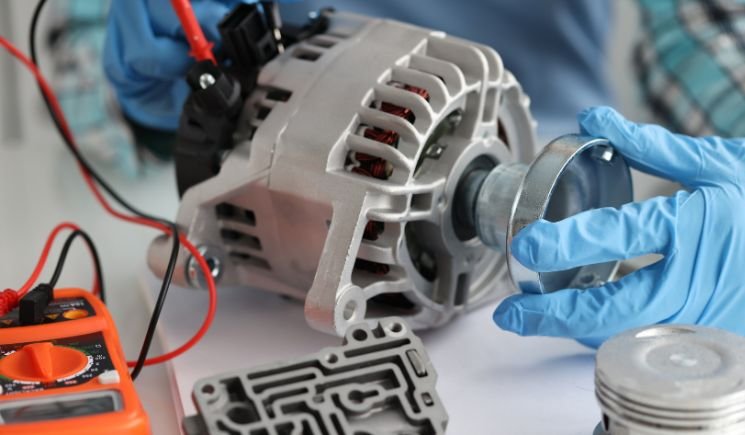It can be incredibly frustrating when your car’s air conditioner stops blowing cold air right after you’ve had the alternator replaced. Since the alternator powers the AC compressor, the new part should fix your AC issues. But sometimes replacing the alternator leads to recent problems with your car’s air conditioning system.
This article will walk you through practical troubleshooting steps to diagnose why your AC is not working after an alternator replacement. We’ll cover potential causes like an AC compressor clutch malfunction, contaminated refrigerant, electrical problems, and faulty installation.
You’ll learn how to inspect your AC components to isolate the issue thoroughly. With some time and targeted troubleshooting, you can get your car’s AC back to blowing icy cold air even after replacing the alternator. We’ll provide tips for preventing issues when installing a new alternator and proactively maintain your AC system.
Potential Causes For AC Not Working After An Alternator Replacement
AC Compressor Clutch
- The clutch allows the compressor to engage and circulate refrigerant. If it malfunctions, the AC won’t work.
- An old clutch may fail at the same time as the old alternator.
Refrigerant Leaks
- Small leaks may slowly lower refrigerant over time. Replacing significant components can disturb the AC system and cause bigger leaks.
Electrical Problems
- Incorrect wiring installation on the new alternator can disrupt the power supply to the AC compressor.
The 5 Most Common Signs That Your Car’s Electrical System Is Failing
Belt and Pulley Issues
- Belts and pulleys are critical components that power many essential systems in your vehicle.
- A slipped belt or misaligned pulley prevents proper compressor operation.
Evaporator Condensation Drain Clog
- The evaporator condensation drain is essential to your car’s air conditioning system.
- A plugged drain can flood the evaporator box and turn off the AC.
Cabin Air Filter Contamination
- The cabin air filter, often behind the glove box, performs important air quality roles for the vehicle’s interior.
- A contaminated filter reduces airflow, resulting in warm air through the vents.
Faulty Parts
- In rare cases, a malfunctioning new alternator or compressor may be defective out of the box.
Possible Solutions For Fixing AC Issues After An Alternator Replacement
- Inspect for a wiring issue or a bad clutch coil that needs replacement.
- Use a UV dye kit to identify any leaks allowing refrigerant to escape. Have professional service to recharge the AC system after repairing leaks.
- Replace any loose belts and realign pulleys so the compressor pulley spins appropriately.
- Use a thin wire to dislodge any dirt or mold in the AC drain tube.
- Install a new filter to allow total air volume through the vents if the current one is clogged.
- Ensure the wiring providing power to the compressor clutch was reconnected correctly after the alternator installation.
- Replacing the compressor or evaporator coil may be necessary for recurring issues.
Frequently Asked Questions About AC Not Working After Alternator Replacement
Q: Is it normal for the AC to need repair after replacing the alternator?
A: It’s not typical, but it can happen. The alternator replacement process may inadvertently disrupt or damage other AC components.
Q: What maintenance helps prevent AC issues after service work?
A: Check cabin air filter, refrigerant level, compressor belt tension, and drain tubes annually. This proactive maintenance provides a preventive defense.

